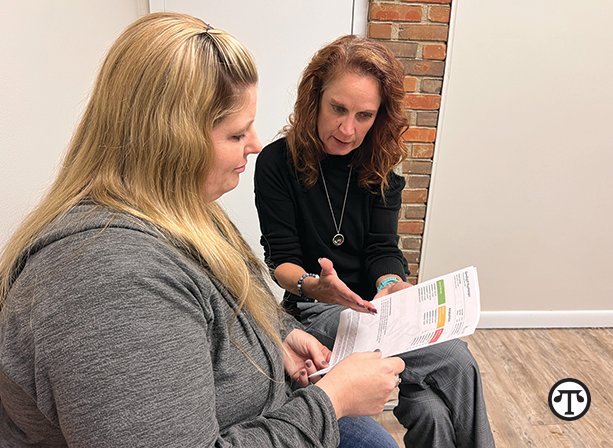 Post Classifieds
Post Classifieds
Many In Primary Care Want Patients To Share Mental Health Concerns

(NAPSI)—Nurse practitioner Michele Long has been Beth’s primary care provider for years. So, when Beth started experiencing symptoms of depression, she scheduled an appointment with Michele.
It was the right decision. According to Beth, “Michele made me feel very comfortable talking to her about my mental health.”
Talking about mental health with primary care providers is something doctors and nurse practitioners want more people to do. According to the GeneSight Mental Health Monitor national survey from Myriad Genetics, more than 83 percent of primary care providers (PCPs) wish more of their patients would tell them about their mental health concerns.
Yet, more than half of surveyed clinicians don’t think patients are aware that PCPs and nurse practitioners are fully trained to diagnose and treat mental health conditions.
“It would be great if patients knew that they could bring up their mental health concerns to me,” said Long. “But it is also my responsibility to complete depression and anxiety screening with them.”
Regular mental health screenings at primary care appointments are a good first step in addressing patients’ mental health, bridging the communication gap, and accurately diagnosing those suffering with mental health conditions. However, diagnosis is just the beginning of what is often an uphill battle to find the appropriate medication and dosage to alleviate patients’ symptoms.
One tool that may help providers is the GeneSight test, which is a genetic test that determines how your genes may affect medication outcomes. Providers get a report about which medications to treat depression, anxiety, ADHD, and other mental health conditions may require dose adjustments, be less likely to work, or have an increased risk of side effects based on a patient’s DNA.
Long uses the GeneSight test to help reduce the medication trial-and-error process. After seeing that a prior depression medication didn’t work for Beth, Long ordered the GeneSight test and used the information to decide how to change Beth’s prescription. Today, Beth says she “feels so much better” and more like herself.
“Finding effective treatment can be a very frustrating process for patients. They often feel defeated when a medication doesn’t help them,” Long said. “GeneSight is a valuable tool that helps me find solutions for patients who have entrusted me with caring for their mental health.”
For more information about genetic testing and mental health, ask your clinician or visit genesight.com.
On the Net:North American Precis Syndicate, Inc.(NAPSI)
Get Top Stories Delivered Weekly
Recent neiuindependent News Articles
Discuss This Article
GET TOP STORIES DELIVERED WEEKLY
FOLLOW OUR NEWSPAPER
LATEST NEIUINDEPENDENT NEWS
RECENT NEIUINDEPENDENT CLASSIFIEDS
OUTSIDE THE LINES
- Tips for Homeowners to Make Summer Home Projects More...
- When Planning International Travel, Measles Vaccination...
- We Can All Contribute To Cooling the Nation
- Women With Ovarian Cancer Explain Why They Support...
- Women With Ovarian Cancer Explain Why They Support...
- Navigating the Heat to Keep Power Bills Cool
- Navigating the Heat to Keep Power Bills Cool
- The EPA Can Help You Save Big On Energy Efficient...
- Cutting Summer Cooling Costs
- Cool Ways to Protect Yourself from Heat-Related Illness
FROM AROUND THE WEB
- Con el Programa de Ayuda Adicional de Medicare Más ...
- BookTrib’s Bites: Four Riveting Summer Reads
- Medicare’s Extra Help Program Helps More People Save M...
- New Artificial Intelligence Summit Series Kicks off With...
- Mike Bond’s Latest Thriller, CRUDE: Nuclear War is C...
- Subway’s 95-Foot-long Dip ‘N Slides Are Making a Huge Spl...
- Pharmacy Benefit Companies Are More Valuable Now Than Ever
- Marine Toys for Tots' Christmas in July Campaign Delivers...
- Dr. Calm's Expert Advice for Mastering Election Stress
- ABANDONED AT BIRTH Paints Vivid Portrait of the...





